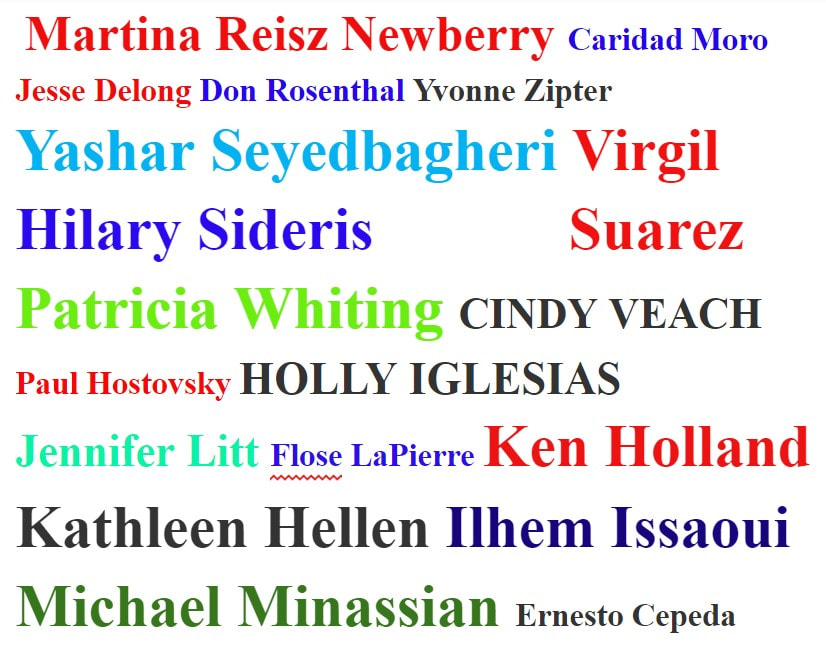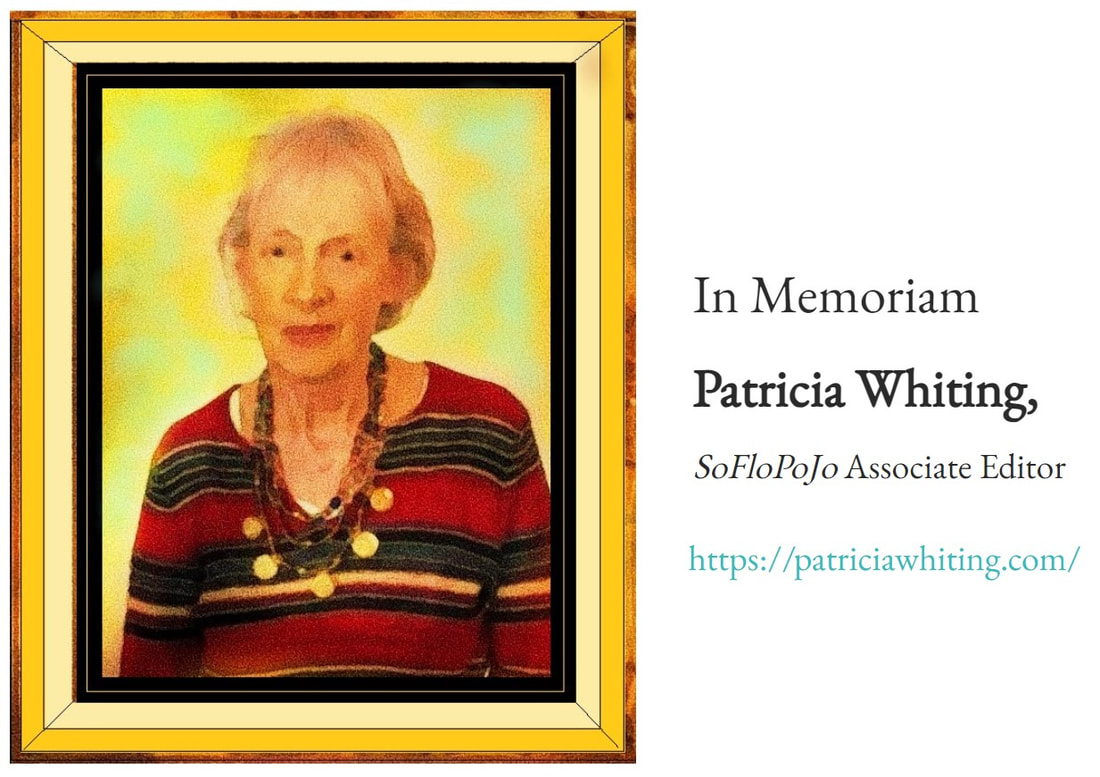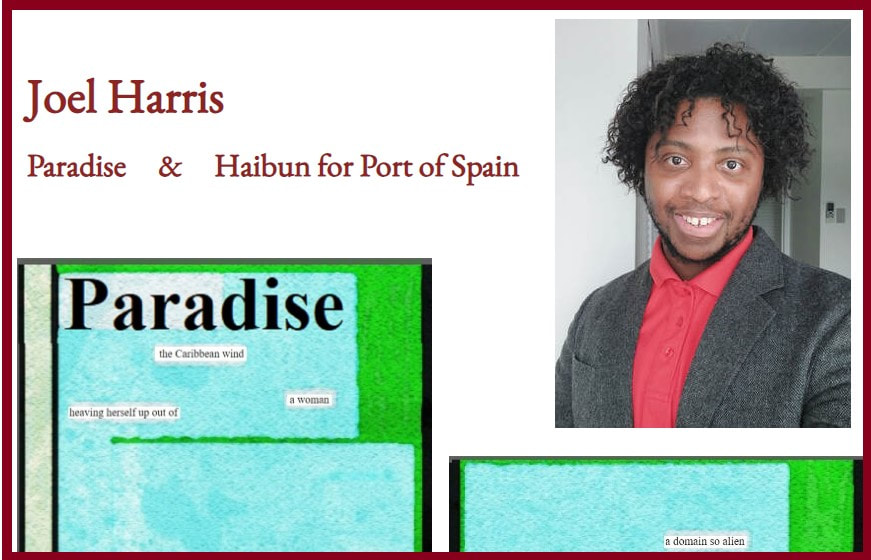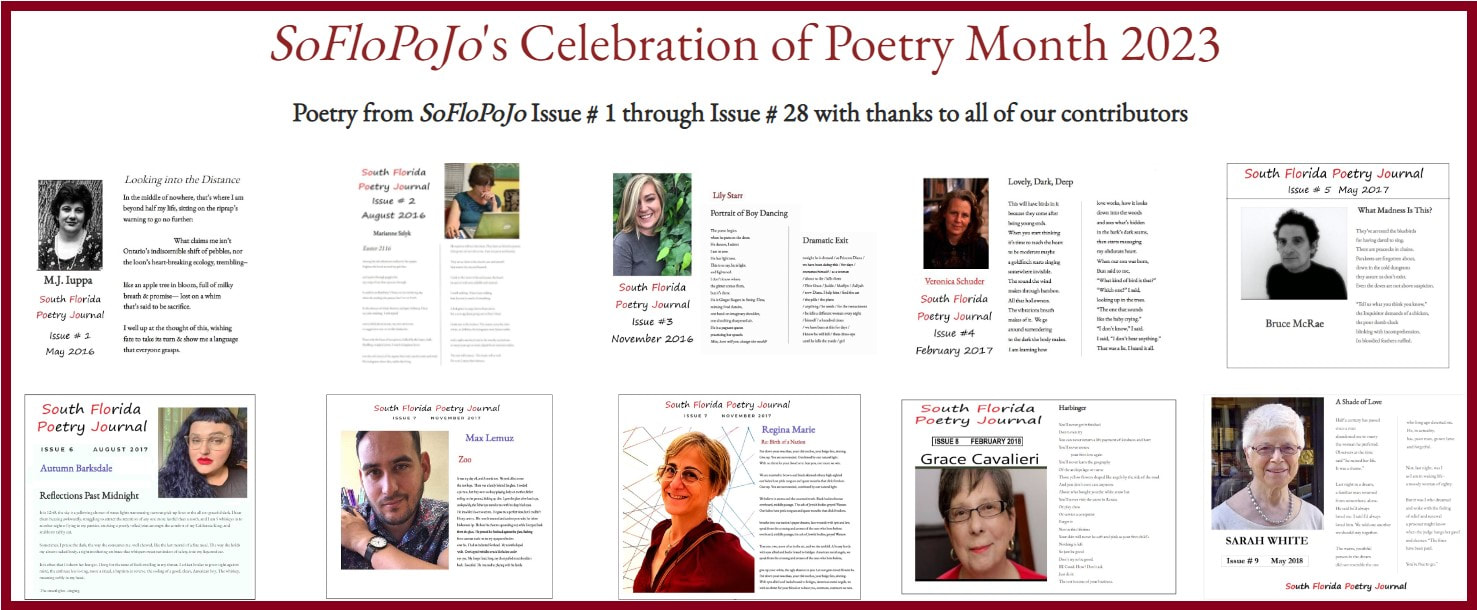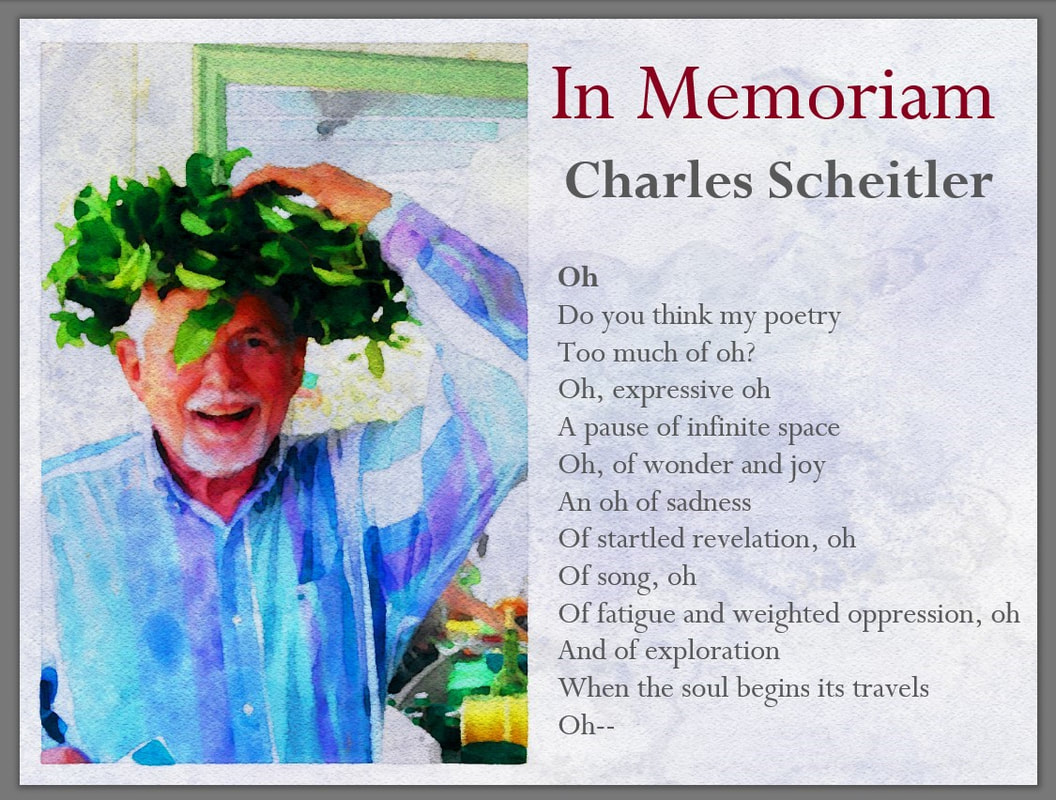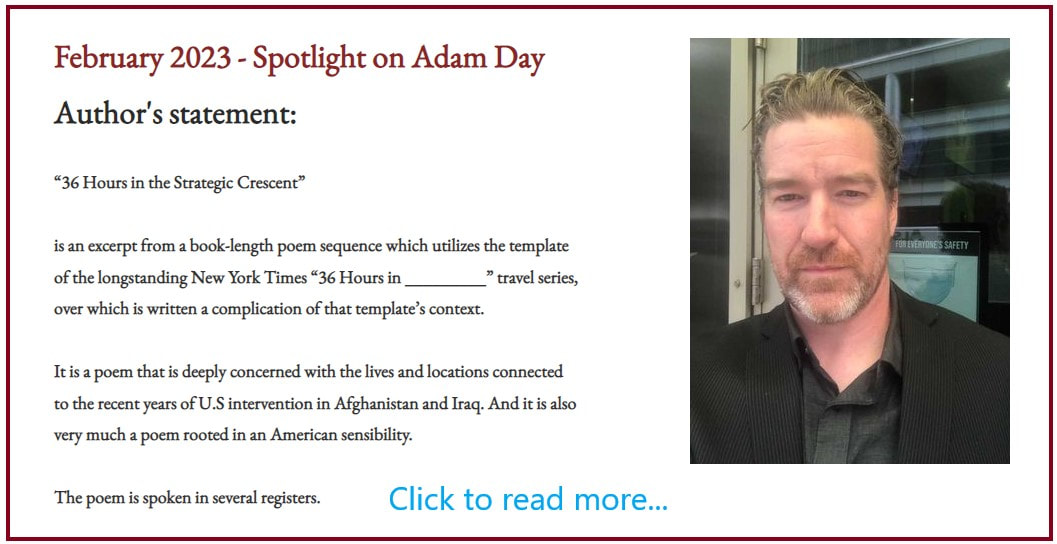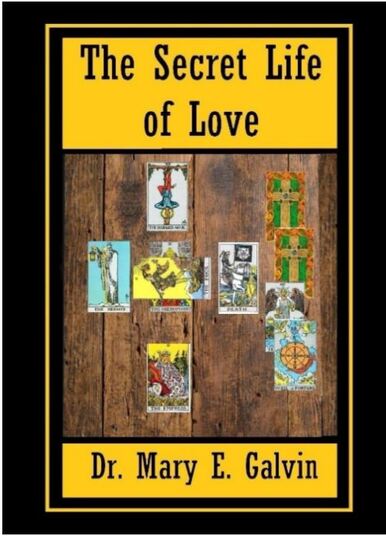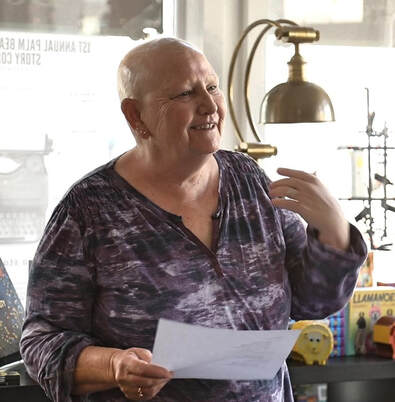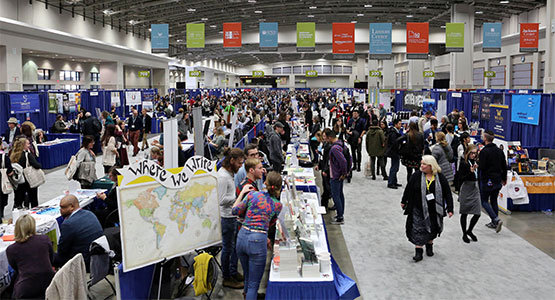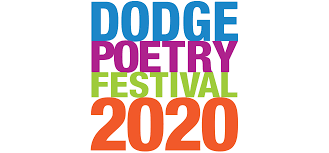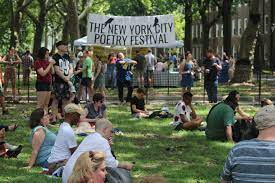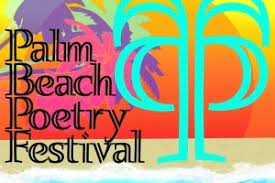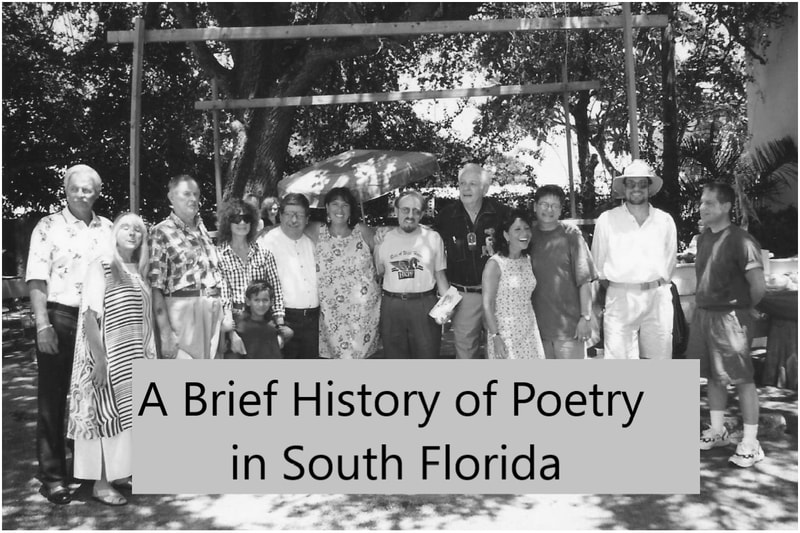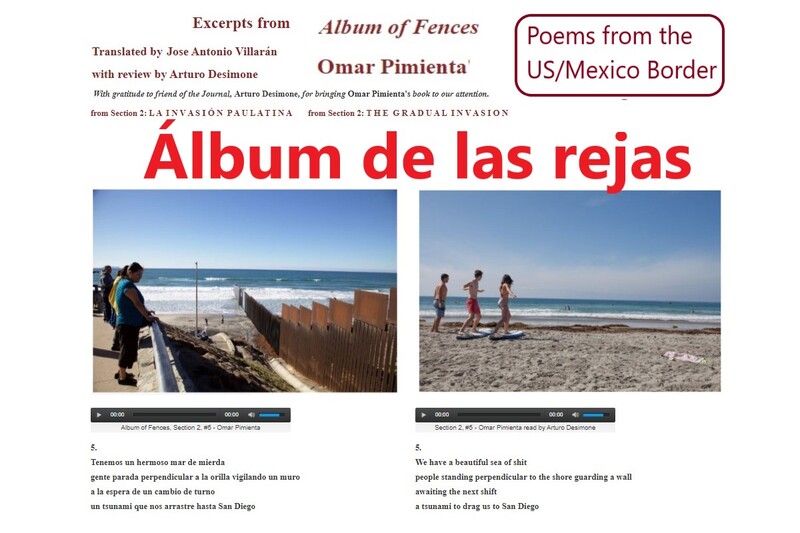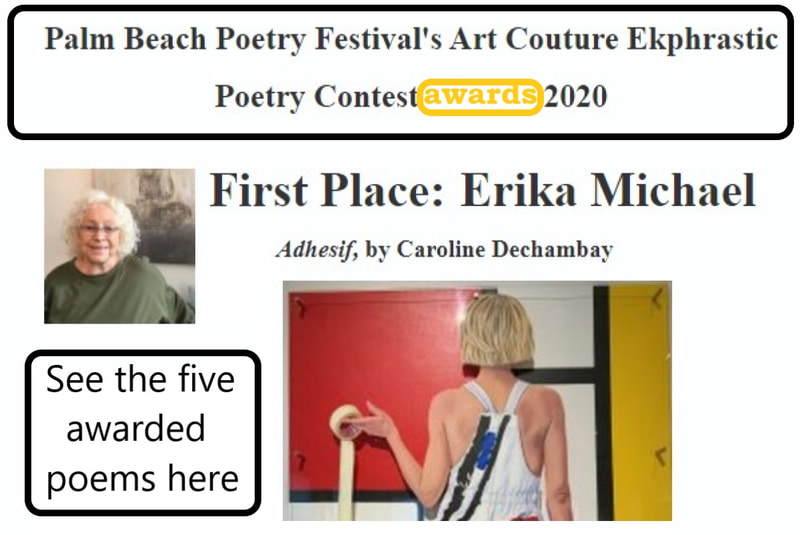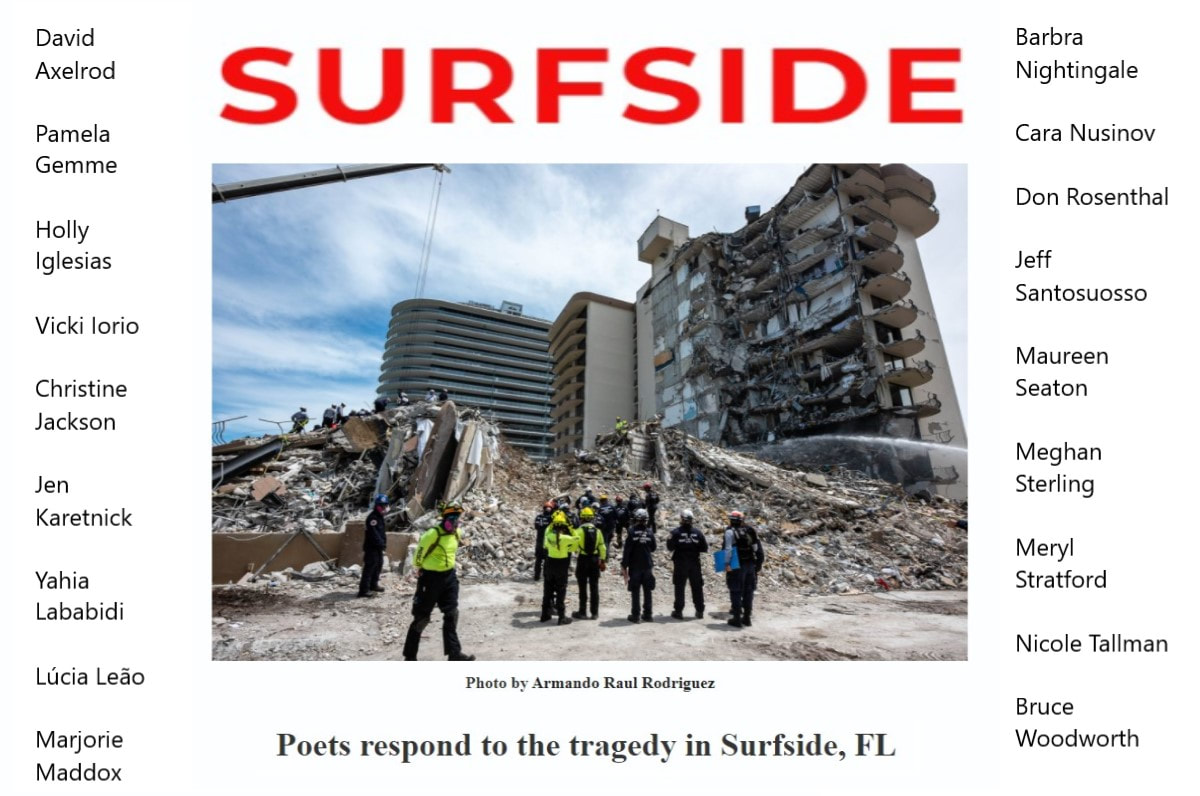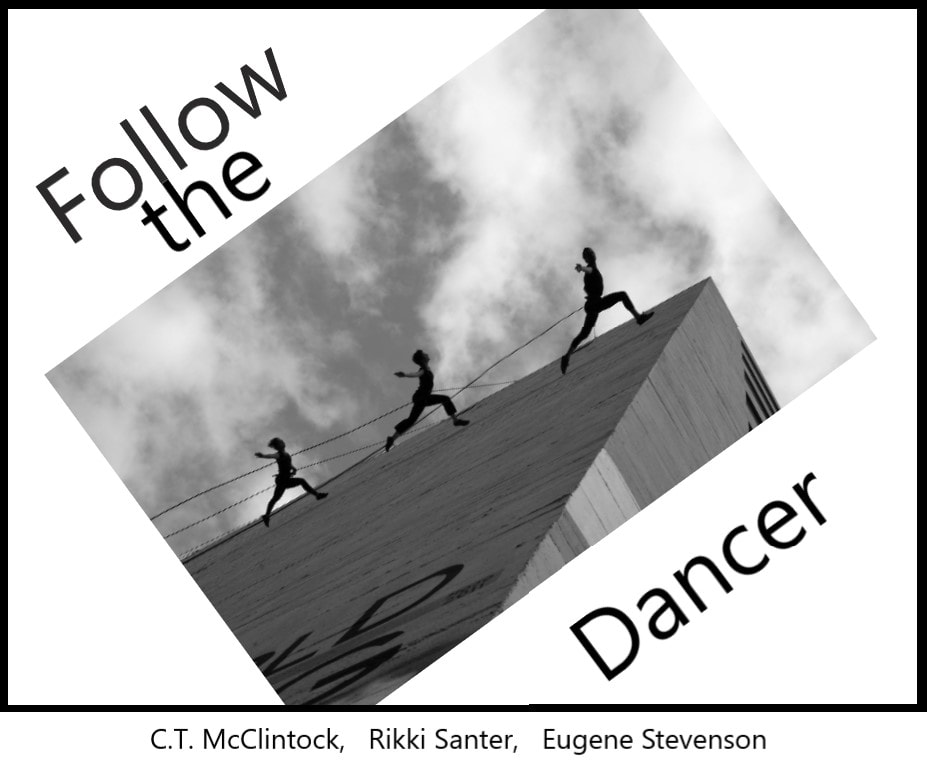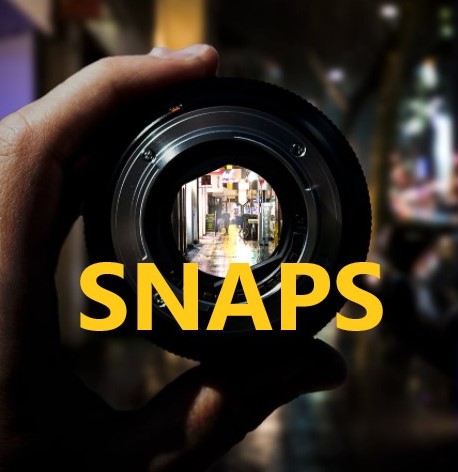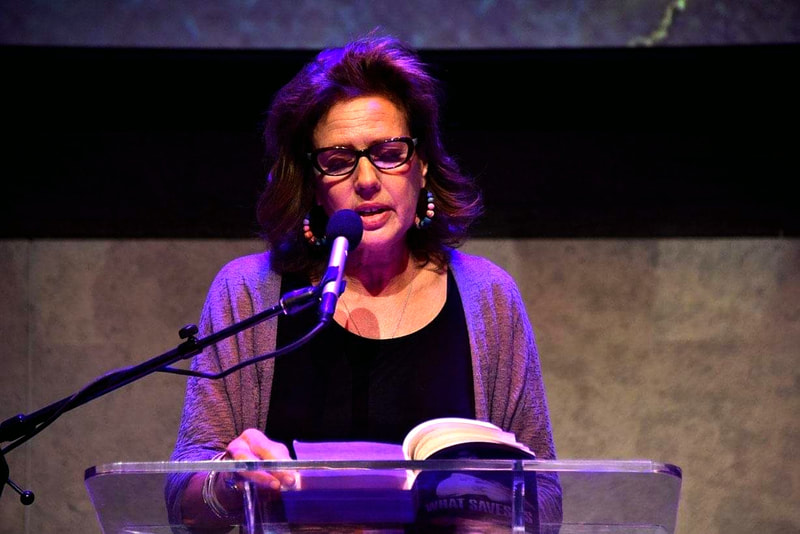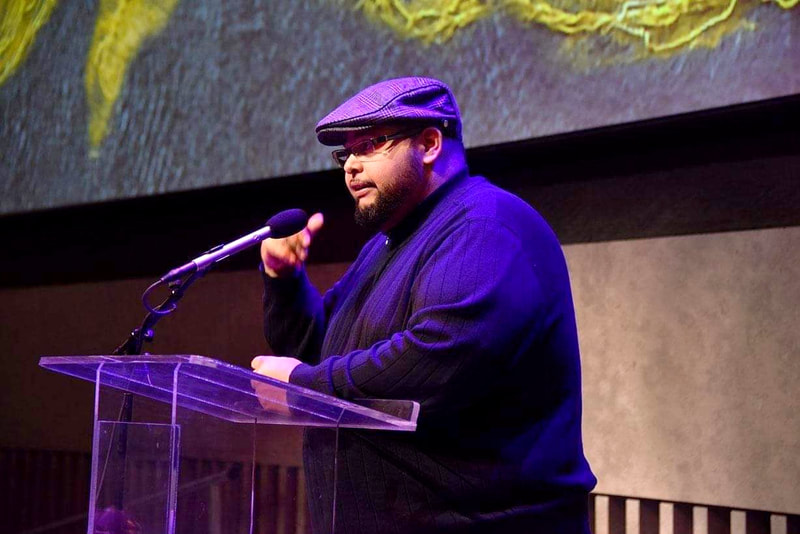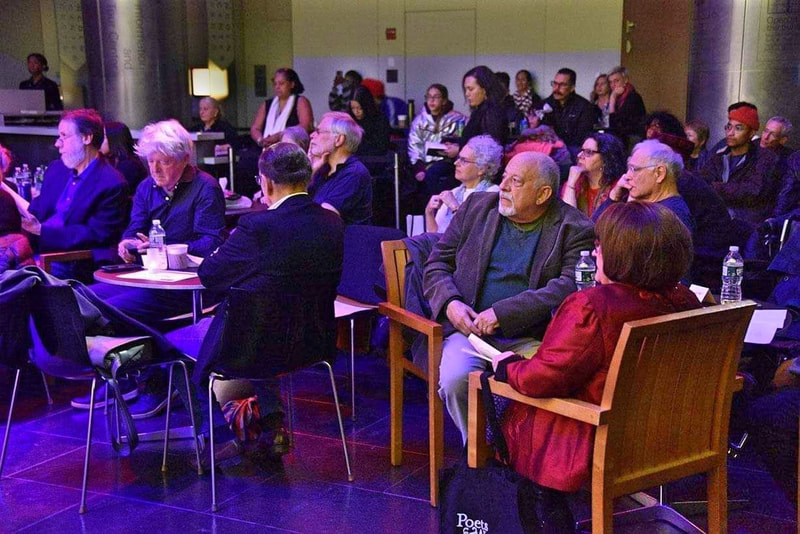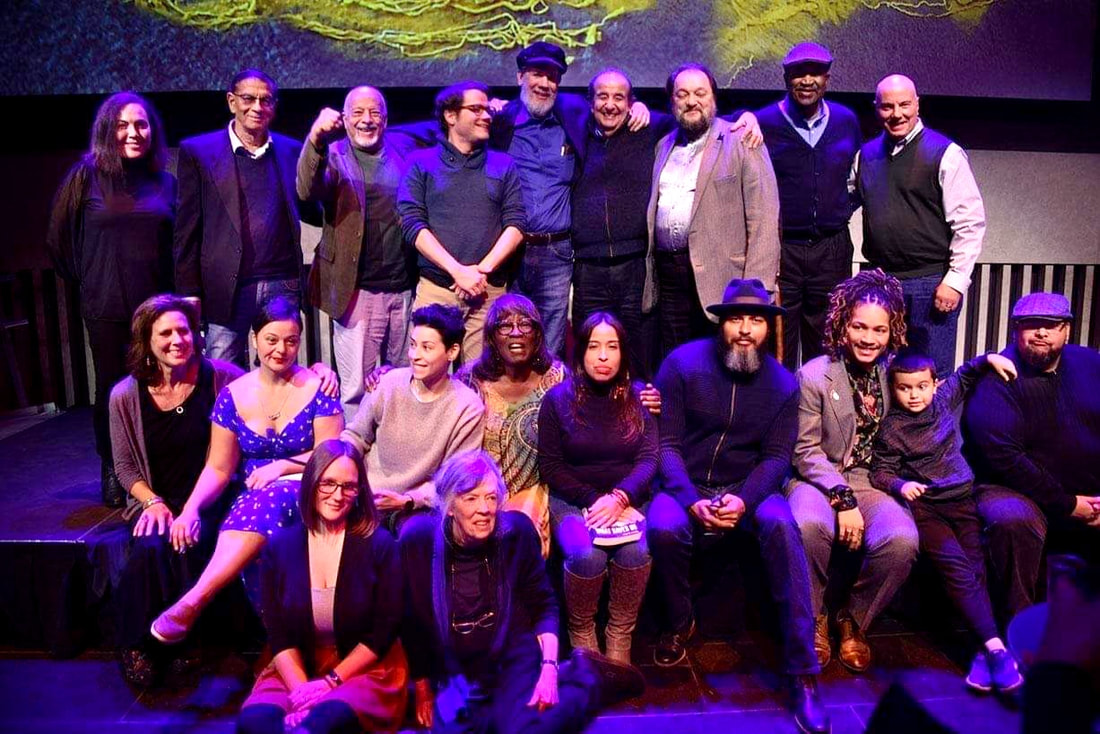SoFloPoJo Contents: Home * Essays * Interviews * Reviews * Special * Video * Visual Arts * Archives * Calendar * Masthead * SUBMIT * Tip Jar
SoFloPoJo Nominations: Best of the Net, Pushcart, Best Microfiction, The Best Small Fictions
Special Section
June 2024
Beatlemania and Other Poems by Corey Mesler and Lenny DellaRocca
A Conversation about The Beatles in Poetry
Beatle Therapy—Corey Mesler
“How does it feel to be one of the beautiful people
now that you know who you are?”
Lennon/McCartney
Sometimes
it makes me happy
just to see
the Apple logo
go round and round.
Sometimes
it’s red, sometimes
green.
Sometimes it’s
split-open white,
like
a spirit’s hand.
All life affirming
hues.
I can stare at
it and
remember
how not to think too
much.
How to give
peace a chance.
“How does it feel to be one of the beautiful people
now that you know who you are?”
Lennon/McCartney
Sometimes
it makes me happy
just to see
the Apple logo
go round and round.
Sometimes
it’s red, sometimes
green.
Sometimes it’s
split-open white,
like
a spirit’s hand.
All life affirming
hues.
I can stare at
it and
remember
how not to think too
much.
How to give
peace a chance.
To Eleanor—Lenny DellaRocca
How was it that you died
waiting for the rain to stop?
Was it a cold day, the bell
loud in the morning?
I come to your door in a song
your shadow on the other side,
your eyes lost in the room
the way a girl is lost
in thoughts about flying
or clouds drifting in street puddles.
What was it that kept you
from undoing your hair
in a tub of lavender and water?
The line is long outside your window,
people with flowers and black umbrellas.
They want tea, to read Stephen Spender
while you sleep in a chair by the fire.
And if nobody speaks the whole
afternoon, that’s alright, because
your room has a language all its own,
wood and silver light, a big instrument
played by the mouth of silence.
When you wait at the window,
you fill the air the way a viola
fills the arms of a man.
What kind of day was it?
You put the picture in the fire
and looked out to the trees.
There have been times I whistled
a tune that sounded like that sitting
beneath a window of an empty church,
rain throbbing in an empty pail.
First publised in Poetrybay
How was it that you died
waiting for the rain to stop?
Was it a cold day, the bell
loud in the morning?
I come to your door in a song
your shadow on the other side,
your eyes lost in the room
the way a girl is lost
in thoughts about flying
or clouds drifting in street puddles.
What was it that kept you
from undoing your hair
in a tub of lavender and water?
The line is long outside your window,
people with flowers and black umbrellas.
They want tea, to read Stephen Spender
while you sleep in a chair by the fire.
And if nobody speaks the whole
afternoon, that’s alright, because
your room has a language all its own,
wood and silver light, a big instrument
played by the mouth of silence.
When you wait at the window,
you fill the air the way a viola
fills the arms of a man.
What kind of day was it?
You put the picture in the fire
and looked out to the trees.
There have been times I whistled
a tune that sounded like that sitting
beneath a window of an empty church,
rain throbbing in an empty pail.
First publised in Poetrybay
Beatlemania—Corey Mesler
“Have you heard the music that no
fingers enter into?”
Kabir
The Beatles
spun straw into gold,
knew the secret name,
took the pearl
of great substance and
found its source
in the oyster’s meat.
The Beatles
were the last great gasp
of the godhead,
before it became again,
you know, just
another way to the path
of light.
“Have you heard the music that no
fingers enter into?”
Kabir
The Beatles
spun straw into gold,
knew the secret name,
took the pearl
of great substance and
found its source
in the oyster’s meat.
The Beatles
were the last great gasp
of the godhead,
before it became again,
you know, just
another way to the path
of light.
Beatlemania—Lenny DellaRocca
A few years before Woodstock and a walk on the moon,
broomsticks were electric guitars.
Singing She loves you, yeah, yeah, yeah
on a trunk in Peter’s dank basement among
his father’s Playboys, the November 23rd newspaper
was already turning yellow.
Depression Glass ash tray
caught light from high windows,
flashed like news
in a green cemetery of Old Gold.
One after another, the black Victrola twirled orange-yellow
galaxies like new tattoos— I Want to Hold Your Hand,
Twist and Shout, All My Lovin’.
Neighborhood girls came down the steps
in pig tails and plaid dresses.
We told them to sit at our feet, scream.
A few years before Woodstock and a walk on the moon,
broomsticks were electric guitars.
Singing She loves you, yeah, yeah, yeah
on a trunk in Peter’s dank basement among
his father’s Playboys, the November 23rd newspaper
was already turning yellow.
Depression Glass ash tray
caught light from high windows,
flashed like news
in a green cemetery of Old Gold.
One after another, the black Victrola twirled orange-yellow
galaxies like new tattoos— I Want to Hold Your Hand,
Twist and Shout, All My Lovin’.
Neighborhood girls came down the steps
in pig tails and plaid dresses.
We told them to sit at our feet, scream.
Let it Be—Corey Mesler
Paul and George step
outside for a quick smoke
between verses of
“I Me Mine.”
“Sorry about the godliness,”
Paul says. George looks
out across the macadam
and says, “Ok, Pauly.
Let’s make a record.”
And they go back inside
where the others are
noodling, darkened figures,
still sick with ariose
energy. Still, you know,
for a bit longer, Beatles.
Paul and George step
outside for a quick smoke
between verses of
“I Me Mine.”
“Sorry about the godliness,”
Paul says. George looks
out across the macadam
and says, “Ok, Pauly.
Let’s make a record.”
And they go back inside
where the others are
noodling, darkened figures,
still sick with ariose
energy. Still, you know,
for a bit longer, Beatles.
Sergeant Pepper—Lenny DellaRocca
So may I introduce to you the act you’ve known for all these years…
- Paul McCartney, The Beatles
What if you learn
Sergeant Pepper is a woman,
bisexual myth-breaker
who has no guilt in pleasing a man
with her sophisticated mouth,
making a woman moan
with her underground hands?
Would you question your belief in astrology,
memories of free spirits freak-dancing
to With a Little Help from My Friends
in a park full of flowers and Frisbees?
Was that really you in bellbottoms,
holding hands with a leopard,
peace sign glittering on her cheek?
The woman you were supposed to meet
at the top of the Empire State Building
never showed, now it’s too late
for Valentines and dark chocolate,
you’ll settle for a bi-polar girl at a bus stop
whose brassy appearance is stronger
than your cholesterol medicine.
Camouflaged beside you on your water bed
Ms. Pepper whispers:
I am tired of your adoration, you spineless fuck
and turns her vibrator up.
The background music of your life
once Lucy in the Sky with Diamonds
is now hip-hop and grunge.
Your records are warped and
Pepper hurls vinyl albums
through your bedroom window,
smashes your mirror with her face,
blood, lipstick on her hands and mouth.
Instead of flower child, vampire.
Everything soft is pierced.
Dreams fall like friends who’d overdosed
on the wrong kind of jolt.
First published in Black Heart Magazine 2016
So may I introduce to you the act you’ve known for all these years…
- Paul McCartney, The Beatles
What if you learn
Sergeant Pepper is a woman,
bisexual myth-breaker
who has no guilt in pleasing a man
with her sophisticated mouth,
making a woman moan
with her underground hands?
Would you question your belief in astrology,
memories of free spirits freak-dancing
to With a Little Help from My Friends
in a park full of flowers and Frisbees?
Was that really you in bellbottoms,
holding hands with a leopard,
peace sign glittering on her cheek?
The woman you were supposed to meet
at the top of the Empire State Building
never showed, now it’s too late
for Valentines and dark chocolate,
you’ll settle for a bi-polar girl at a bus stop
whose brassy appearance is stronger
than your cholesterol medicine.
Camouflaged beside you on your water bed
Ms. Pepper whispers:
I am tired of your adoration, you spineless fuck
and turns her vibrator up.
The background music of your life
once Lucy in the Sky with Diamonds
is now hip-hop and grunge.
Your records are warped and
Pepper hurls vinyl albums
through your bedroom window,
smashes your mirror with her face,
blood, lipstick on her hands and mouth.
Instead of flower child, vampire.
Everything soft is pierced.
Dreams fall like friends who’d overdosed
on the wrong kind of jolt.
First published in Black Heart Magazine 2016
The Singing—Corey Mesler
We felt, the bunch of us
gathered around the
candlelight, that if the Beatles
stopped singing “Tomorrow
Never Knows” we
would fade like the night into
the day. So we sang along,
scared to look at each other,
hitting every note as purely
as if we were trained.
Louder and louder, as the wicks
wavered and the flames
sputtered, and the song became
an anthem, a hymn to life
and not just the fear of death.
We felt, the bunch of us
gathered around the
candlelight, that if the Beatles
stopped singing “Tomorrow
Never Knows” we
would fade like the night into
the day. So we sang along,
scared to look at each other,
hitting every note as purely
as if we were trained.
Louder and louder, as the wicks
wavered and the flames
sputtered, and the song became
an anthem, a hymn to life
and not just the fear of death.
Nowhere Man—Lenny DellaRocca
Train windows look out to
back yards of boys and girls
with faces from Fun with Dick and Jane,
with ears made of paper.
Trees fly by like the background of cartoons,
same reel of shapes while Yogi and
Boo-Boo steal another pic-a-nic basket.
I decorate one Pullman after another
with posters of Warhol and Tina Louise.
The conductor smiles waving as he goes
punching holes in tickets that aren't there.
I roll toward a distance that never gets here
even when the train is throttled,
even when I close my eyes.
But somebody will come to help me,
someone with a bright left hand.
She’ll pull the lever, make the wheels
smoke to a stop, the whistle will call
the world back from the brink of madness.
I’ll walk into town with a suitcase
heavy with crisp new clothes,
and folded neatly under my arm--
a map of Somewhere.
First published in Poetrybay
Train windows look out to
back yards of boys and girls
with faces from Fun with Dick and Jane,
with ears made of paper.
Trees fly by like the background of cartoons,
same reel of shapes while Yogi and
Boo-Boo steal another pic-a-nic basket.
I decorate one Pullman after another
with posters of Warhol and Tina Louise.
The conductor smiles waving as he goes
punching holes in tickets that aren't there.
I roll toward a distance that never gets here
even when the train is throttled,
even when I close my eyes.
But somebody will come to help me,
someone with a bright left hand.
She’ll pull the lever, make the wheels
smoke to a stop, the whistle will call
the world back from the brink of madness.
I’ll walk into town with a suitcase
heavy with crisp new clothes,
and folded neatly under my arm--
a map of Somewhere.
First published in Poetrybay
John Lennon Fantasia—Corey Mesler
John Lennon hangs
in the branches of the great oak
in my front yard,
a figurative kite. I stare up at him
full of questions but
I manage only one: is there
life after The Beatles?
He bobs once—whether
in response I don’t know--is picked up by a
breeze and sails off over
my neighborhood like a jesting ghost.
John Lennon hangs
in the branches of the great oak
in my front yard,
a figurative kite. I stare up at him
full of questions but
I manage only one: is there
life after The Beatles?
He bobs once—whether
in response I don’t know--is picked up by a
breeze and sails off over
my neighborhood like a jesting ghost.
He Was the Walrus—Lenny DellaRocca
Hemorrhage of odd phrases, laughter of nomenclature,
John Lennon sidesteps the usual whistle and prayer.
Somewhere in the dark he
knocks on a colorful door and opens it --
first with a pinky finger and then after the first few
boons of euphoria, after the initial architecture
built by shapes the mouth makes, opens it with
his entire hand letting in a flood of disparate jargon--
puzzle of whimsy and fetish:
Pigs go soft in surreal rain, image gobbles image
like a language beast.
Thus goo goo ga joob is yellow matter custard
dripping from a dead dog’s eye.
The mind insists we follow all impossible paths,
dirt and electric.
He makes an instantaneous list of symbolic nonsense,
paints the thought process with numb-perfect black and
gives us fermenting red syllables—the body’s will to make solid
the fierce, intangible world.
Hemorrhage of odd phrases, laughter of nomenclature,
John Lennon sidesteps the usual whistle and prayer.
Somewhere in the dark he
knocks on a colorful door and opens it --
first with a pinky finger and then after the first few
boons of euphoria, after the initial architecture
built by shapes the mouth makes, opens it with
his entire hand letting in a flood of disparate jargon--
puzzle of whimsy and fetish:
Pigs go soft in surreal rain, image gobbles image
like a language beast.
Thus goo goo ga joob is yellow matter custard
dripping from a dead dog’s eye.
The mind insists we follow all impossible paths,
dirt and electric.
He makes an instantaneous list of symbolic nonsense,
paints the thought process with numb-perfect black and
gives us fermenting red syllables—the body’s will to make solid
the fierce, intangible world.
COREY MESLER has been published in numerous anthologies and journals including Poetry, Gargoyle, Lunch Ticket, Five Points, Good Poems American Places, and New Stories from the South. He has published over 45 books of fiction and poetry. With his wife he owns Burke’s Book Store (est. 1875) in Memphis.
Lenny DellaRocca saw The Beatles on the Ed Sullivan Show Feb. 9, 1964 and hasn't been the same since.
Lenny DellaRocca saw The Beatles on the Ed Sullivan Show Feb. 9, 1964 and hasn't been the same since.
January 2024
April-May 2023
Click below to view detail.
March 2023
|
November 2022 In Memoriam Mary Galvin Song for Today The dog in bed, the cat up already crying at the door, my love beside me, reading her phone, brilliant sunshine, an old man channeling Rumi--no, being Rumi--a young cellist bowing and plucking his response to the call, call and response overlapping, entwining in our ears: All is one, that platitude of insight; it reminds me of the time you said, this is the origin of all poems; this is the lover and beloved as one. Tucked inside your office, my urban girl who doesn’t care much for the out of doors, looking at photos online of a wedding that wasn’t yours. You were singing I’m just a gigolo, heartbreak hotel, I can’t get no… and I turned these songs inside out through translation into Italian and back: I love you like no other, home is where, bliss and kisses, isn’t it strange, my funny valentine, how the road leads… a little girl in a house of older siblings and parents nearly too old yet fierce enough to throw children into the shameful basement, sing songs that had no tune, no basis for harmony, that sounded like a roar. indigo, midnight, aqua, teal, cerulean, baby, sky, ocean, my heart, my life, before I met you. I’m afraid to sing, to not sing, to have no tune or seem the fool. I’m afraid of losing my strength; I couldn’t pull myself up to sit on the wall the way I once did. A quieting, a shushing of these nattering chickadees, these screeching peacocks, a hush of forgiveness inside my rushing veins: quiet the roaring. It was beautiful, it was blank; calming as an all white sky with no threat of rain, an open palm placed gently against my cheek, it was wondrous the way you touched me just where I wanted, brilliant as the hibiscus flower, fragrant as jasmine blooming the night. deep deep terror that shuts everything down into the deep deep silence of the quiet heart, the deep deep peace I love you. I love myself, unconditionally. There is warmth and plenty in our house. A sun overhead, a room full of poets, the intake of your breath, the crinkling of your shirt sleeve as you lift your arm, in the distance, a bird. Oh, my love, you are beautiful, you are not at all what I imagined. You. Mary Galvin, SoFloPoJo Contributor and Guest Editor. SoFloPoJo & The Betsy Hotel's Poet-in-Residence - February 2020 Published in SoFloPoJo - South Florida Poetry Journal Issue 16 February 2020 |
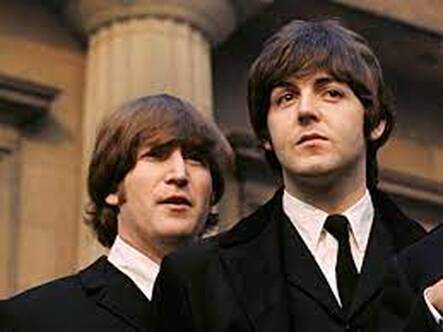
- May 2022: We asked poets one question:
- —LENNON or McCARTNEY?
What Was/Is Your Favorite Poetry Event?
For the February 2022 Special Section, we asked poets and writers to tell us about your favorite poetry residence, reading series, festival, conference, colony, workshop, writing program, etc. When did you attend? Was there a poet or author there with whom you worked? What advice did you receive that has helped your work or career? Do you have photos? Attach them! Perhaps we’ll use one. This is an ongoing project, please feel free to send your memories of literary events and photos to [email protected]
Richard Ryal Plantation, FL
The most personally significant poetry event I attended was in the Silver Lake section of L.A.
The woman I was living with told me it was run by people in her 12-Step group who worked in film
and television. I was curious, though I had barely written or read anything like poetry for years,
so we went. I heard poetry that felt alive in a way that most poems on a page didn’t. Actors and
poets brought their pieces alive, even the worst of their poems.
The highlight for me was Harry Dean Stanton reading “His Last Duchess,” a poem I would have
considered familiar until that night. I heard it in a new way befitting its narrative character. Since
always carried a notebook when I could, I pulled it out and, without thinking, began writing.
My first line was, “Cain saw. Manhattan made him happy.” I had no idea what it meant or why it
came to me. This night was my undoing and poetry has provoked and stalked me regularly
since.
When I told Jane the next day I still didn’t know what to do with poetry on the page, she pulled
an anthology off her office shelf and opened it to James Dickey’s “The Heaven of Animals.” I was
stunned to find a full, self-contained reality that moved me without telling me what I should
think or believe. Now I needed to become a poet. I had a history of incredibly interesting, low
paying career choices and now I was committing to something that seldom made money for
even the best in the field. The trapdoor opened and I fell through.
The woman I was living with told me it was run by people in her 12-Step group who worked in film
and television. I was curious, though I had barely written or read anything like poetry for years,
so we went. I heard poetry that felt alive in a way that most poems on a page didn’t. Actors and
poets brought their pieces alive, even the worst of their poems.
The highlight for me was Harry Dean Stanton reading “His Last Duchess,” a poem I would have
considered familiar until that night. I heard it in a new way befitting its narrative character. Since
always carried a notebook when I could, I pulled it out and, without thinking, began writing.
My first line was, “Cain saw. Manhattan made him happy.” I had no idea what it meant or why it
came to me. This night was my undoing and poetry has provoked and stalked me regularly
since.
When I told Jane the next day I still didn’t know what to do with poetry on the page, she pulled
an anthology off her office shelf and opened it to James Dickey’s “The Heaven of Animals.” I was
stunned to find a full, self-contained reality that moved me without telling me what I should
think or believe. Now I needed to become a poet. I had a history of incredibly interesting, low
paying career choices and now I was committing to something that seldom made money for
even the best in the field. The trapdoor opened and I fell through.
Marybeth Walsh Neptune Beach, FL
AT A LITERARY FESTIVAL: BETTER THAN ELVIS
When my kids were small, our family made a pilgrimage to the National Book Festival in
Washington, DC. As my husband took the kids around, I sat, second in line to meet my literary hero,
daydreaming about the erudite conversation we’d have. I conjured up a bazillion intelligent questions and
comments about his masterwork with confidence. After all, I was a writer who taught college English--
just like him. Besides, his relative fame wouldn’t faze me in comparison to the bands I’d hung out with as
a student, who now fill stadiums.
When it was my turn to have my book signed, the author acted like there was no crowd, no line,
and no reason for us to be talking, other than two friends meeting by happenstance. We debated the drive
time from my obscure backcountry town to the capitol, and before saying goodbye, he kissed me on the
cheek. Dazed and clutching said cheek, I stumbled over to my family and proclaimed like a lovesick teen
who’d met Elvis, “He kissed me. He kissed me!” So much for the meeting of literary minds, I’d been
starstruck.
My kids came home from the festival with memories of the very gracious creators of the
Spiderwick Chronicles signing their books, and the Diary of the Wimpy Kid author telling a story while
drawing it on a white board—oh and a memory of their mother swooning. It’s still one of their favorite
family stories to recount and reminds me not to take this writing stuff too seriously.
Marybeth Walsh lives in Neptune Beach, Florida. After stints running a homeless shelter, creating nature education programs, moving furniture, and (book)clubbing, she has become a student in Reinhardt University’s MFA program.
(note: I write under my maiden name)
When my kids were small, our family made a pilgrimage to the National Book Festival in
Washington, DC. As my husband took the kids around, I sat, second in line to meet my literary hero,
daydreaming about the erudite conversation we’d have. I conjured up a bazillion intelligent questions and
comments about his masterwork with confidence. After all, I was a writer who taught college English--
just like him. Besides, his relative fame wouldn’t faze me in comparison to the bands I’d hung out with as
a student, who now fill stadiums.
When it was my turn to have my book signed, the author acted like there was no crowd, no line,
and no reason for us to be talking, other than two friends meeting by happenstance. We debated the drive
time from my obscure backcountry town to the capitol, and before saying goodbye, he kissed me on the
cheek. Dazed and clutching said cheek, I stumbled over to my family and proclaimed like a lovesick teen
who’d met Elvis, “He kissed me. He kissed me!” So much for the meeting of literary minds, I’d been
starstruck.
My kids came home from the festival with memories of the very gracious creators of the
Spiderwick Chronicles signing their books, and the Diary of the Wimpy Kid author telling a story while
drawing it on a white board—oh and a memory of their mother swooning. It’s still one of their favorite
family stories to recount and reminds me not to take this writing stuff too seriously.
Marybeth Walsh lives in Neptune Beach, Florida. After stints running a homeless shelter, creating nature education programs, moving furniture, and (book)clubbing, she has become a student in Reinhardt University’s MFA program.
(note: I write under my maiden name)
In Memoriam - Zan Gay

South Florida Poetry Journal recently lost a dear friend. Her intellect, poetry, kindness and workshops will be missed.
Here
Hint of lake wind, fishy
hot and dry from winter’s drought,
a slight breath
on delicates and tees
draped on an old wooden rack,
brevity pronounced
when the clothes stiffen, fragrant
with soap and a gardenia bush,
folded and put away,
a hold on to the Here,
yet there is a hurtling too
day in day out
towards the finish of our afternoons.
Zan Gay enjoyed art reference library work for many years. Her work has appeared in literary journals such as Feminist Studies, Phoebe, Slant, Tigertail.
Here
Hint of lake wind, fishy
hot and dry from winter’s drought,
a slight breath
on delicates and tees
draped on an old wooden rack,
brevity pronounced
when the clothes stiffen, fragrant
with soap and a gardenia bush,
folded and put away,
a hold on to the Here,
yet there is a hurtling too
day in day out
towards the finish of our afternoons.
Zan Gay enjoyed art reference library work for many years. Her work has appeared in literary journals such as Feminist Studies, Phoebe, Slant, Tigertail.
Click on the picture below to go to the Featured Story
The Neighborhood of Make Believe—after Thomas Lux
scroll down for more photo essays, travelogues and more
Poets in Prison

The Luis Angel Hernandez Florida Prison Poet Laureate is an honorary two-year position awarded by Exchange for Change and O, Miami Poetry Festival to a poet incarcerated within the Florida Department of Corrections.
The vision for of the Laureateship is to Increase visibility of Florida’s prison population, drawing attention to the lives and living conditions of incarcerated people; advocate for widespread, cost-free humanities education and programs in carceral settings nationwide; change public perception about incarcerated people,and assert the basic humanity of all living beings.
The contest is named in honor of Luis Angel Hernandez, an incarcerated Florida poet who passed away from cancer in 2018.
The current Luis Angel Hernandez Florida Prison Poet Laureate is Christopher Malek.
Malek’s poem “Bruises” appears at the Poetry Fundations’ wbsite-
https://www.poetryfoundation.org/poetrymagazine/poems/155243/bruises-5ff7b464a6237
Malek is working on his first collection of poems, and his work has been commissioned by the University of Arizona’s Art for Justice project.
The vision for of the Laureateship is to Increase visibility of Florida’s prison population, drawing attention to the lives and living conditions of incarcerated people; advocate for widespread, cost-free humanities education and programs in carceral settings nationwide; change public perception about incarcerated people,and assert the basic humanity of all living beings.
The contest is named in honor of Luis Angel Hernandez, an incarcerated Florida poet who passed away from cancer in 2018.
The current Luis Angel Hernandez Florida Prison Poet Laureate is Christopher Malek.
Malek’s poem “Bruises” appears at the Poetry Fundations’ wbsite-
https://www.poetryfoundation.org/poetrymagazine/poems/155243/bruises-5ff7b464a6237
Malek is working on his first collection of poems, and his work has been commissioned by the University of Arizona’s Art for Justice project.
Tell Us Something You've Done That Our Facebook Friends Have Not
a cento by Facebook friends
Lauren Had Jimmy Page drive me home from Thee Image (Miami).
Jennifer: I stole cocaine!
James: Sutured lacerations on inmates.
Scott: Performed acupuncture.
Jennifer L: When I was an au pair in London, I took care of Prime Minister Callahan’s granddaughter, Tamsin Jay.
Jonathan: Drank beer with Lightnin' Hopkins, Walter Shakey Horton, Willie Dixon & Muddy Waters at War Memorial Auditorium in Ft Lauderdale circa 1970-71.
Wanda: Was seriously electrocuted.
Laura: Got married in Bora Bora.
Leah: Volunteered for the Jerry Lewis Telethon for Muscular Dystrophy in NYC. Patty Duke hosted.
Tricia: Rode a pregnant cow.
Betsy: Was on Kids Say the Darndest Things back in Art Linkletter's day.
Shelly: Had lunch with Hank Aaron.
Cara: Sat and talked to Penny Marshall at a Barbra Streisand concert.
Leslie: Worked as an usher for the Jackie Gleason show in Miami Beach, and lived with you!
Ruth: Threatened a bear with a cast iron skillet, and swam in John Wayne’s swimming pool.
Francine: Snuck backstage at a Ritchie Haven's concert at Central Park. He autographed my tee-shirt.
Maria: I helped write a speech for the Pope.
Jay: Got lost in the Gaza Strip at midnight.
Pamela: I acted as a courier for a trip from Florida to Indonesia with stops to deliver packages in Tokyo and Singapore and back.
Stacie: Ran a nationwide, coast to coast, marijuana distribution.
Mary Jane: Survived seven rifle shots sent in my direction!
Gillian: Walked with lions in South Africa.
Pamela G: Slept with boyfriend in a convent.
Victor: At 8 years old, I played sax with Jr. Walker and the All Stars while my Dad was on the drums.
Jeff: I impersonated Tim McGraw under hypnosis.
Lynne: Asked Dustin Hoffman directions in the NYC Broadway theater district.
Laurie: Physically built our house like Rosie the Riveter
Janet: Had a high-speed malfunction while skydiving and landed under a reserve chute in Miami-Dade Correctional Institution in Florida City.
a cento by Facebook friends
Lauren Had Jimmy Page drive me home from Thee Image (Miami).
Jennifer: I stole cocaine!
James: Sutured lacerations on inmates.
Scott: Performed acupuncture.
Jennifer L: When I was an au pair in London, I took care of Prime Minister Callahan’s granddaughter, Tamsin Jay.
Jonathan: Drank beer with Lightnin' Hopkins, Walter Shakey Horton, Willie Dixon & Muddy Waters at War Memorial Auditorium in Ft Lauderdale circa 1970-71.
Wanda: Was seriously electrocuted.
Laura: Got married in Bora Bora.
Leah: Volunteered for the Jerry Lewis Telethon for Muscular Dystrophy in NYC. Patty Duke hosted.
Tricia: Rode a pregnant cow.
Betsy: Was on Kids Say the Darndest Things back in Art Linkletter's day.
Shelly: Had lunch with Hank Aaron.
Cara: Sat and talked to Penny Marshall at a Barbra Streisand concert.
Leslie: Worked as an usher for the Jackie Gleason show in Miami Beach, and lived with you!
Ruth: Threatened a bear with a cast iron skillet, and swam in John Wayne’s swimming pool.
Francine: Snuck backstage at a Ritchie Haven's concert at Central Park. He autographed my tee-shirt.
Maria: I helped write a speech for the Pope.
Jay: Got lost in the Gaza Strip at midnight.
Pamela: I acted as a courier for a trip from Florida to Indonesia with stops to deliver packages in Tokyo and Singapore and back.
Stacie: Ran a nationwide, coast to coast, marijuana distribution.
Mary Jane: Survived seven rifle shots sent in my direction!
Gillian: Walked with lions in South Africa.
Pamela G: Slept with boyfriend in a convent.
Victor: At 8 years old, I played sax with Jr. Walker and the All Stars while my Dad was on the drums.
Jeff: I impersonated Tim McGraw under hypnosis.
Lynne: Asked Dustin Hoffman directions in the NYC Broadway theater district.
Laurie: Physically built our house like Rosie the Riveter
Janet: Had a high-speed malfunction while skydiving and landed under a reserve chute in Miami-Dade Correctional Institution in Florida City.
SoFloPoJo & The Betsy Hotel's Poet-in-Residence
Mary Galvin - February 2020
Mary Galvin - February 2020
Mary Galvin lives in Lake Worth, Florida, and has been reading and writing poetry since she was a child. Her poetry has been published in Southern Women’s Review, Homestead Review, and East Coast Literary Review. In addition to being a poet, she is the author of Queer Poetics (Greenwood/Praeger, 1999), a critical study of Modernist women poets. Mary holds a Doctor of Arts from the State University of New York at Albany, and is currently a Professor of English at Palm Beach State College in Lake Worth.
The first partnership between SoFloPoJo and The Betsy Hotel took place Sunday, February 16, 2020. The Betsy Hotel's Writer's Room offers residences for poets, writers, musicians and artists. Mary Galvin spent about a week working on her poetry and enjoying the spectacular ambience of the The Betsy.
Fans and poets from Palm Beach County came down to South Beach to listen to Galvin read new work as well as older poems. Among the poets were: Judy Ireland, Cara Nusinov, Jennifer Greenberg, Margie Schnabel, Jennifer Litt, Stephen Gibson, Holly Jaffee, and Lucia Leao. The Betsy's showrunner Sandra Rovira was our gracious host. (Pictured with Galvin above left). The Betsy is a cultural treasure in South Florida hosting poetry readings and books signings in association with SWWIM Everyday, O, Miami and The Academy of America Poets. https://www.thebetsyhotel.com/explore/about-us
Fans and poets from Palm Beach County came down to South Beach to listen to Galvin read new work as well as older poems. Among the poets were: Judy Ireland, Cara Nusinov, Jennifer Greenberg, Margie Schnabel, Jennifer Litt, Stephen Gibson, Holly Jaffee, and Lucia Leao. The Betsy's showrunner Sandra Rovira was our gracious host. (Pictured with Galvin above left). The Betsy is a cultural treasure in South Florida hosting poetry readings and books signings in association with SWWIM Everyday, O, Miami and The Academy of America Poets. https://www.thebetsyhotel.com/explore/about-us
February 2020 issue 16
What Saves Us - Very Possibly It's Poetry
by Francine Witte All photos by Mark Strodl
by Francine Witte All photos by Mark Strodl
|
Martin Espada & Gabriel Ramírez
Kathy Engel & Rich Villar
George Wallace & Audience
|
What does it mean to live in a country that won’t call you a citizen? A country at odds with its own symbol of welcome in New York Harbor? A country whose president throws rolls of paper towels in response to a hurricane? These were just some of the questions asked in the form of poetry on November 8, 2019 at the launch reading for What Saves Us published by Curbstone Books/Northwestern University Press and edited by Martin Espada.
The reading took place in Lincoln Center’s David Rubinstein Atrium to a standing room only crowd. Hosted by New York City Poet, Rich Villar, one by one, poets ascended the stage to ask difficult, searing questions, each reading their entry in the anthology. Lincoln Center seems an odd choice for a reading of dissident poetry, when you consider it is one of America’s foremost symbols of wealth and privilege. The Atrium was on 62nd street, but a mere block or two away, the well-heeled were dropping upwards of 200 dollars to listen to a three-hour opera, or watch ballet. How can the questions of a handful of poets share the same air, much less rise above it loud enough to be heard? Simple. It’s the roar. It’s the roar of poems spectacularly crafted and sharp. The lion himself, Martin Espada, bookended the reading with two such poems. Ending the reading with “Letter to my Father,” he remembers his father and the hard lessons he learned from him, “you taught me there is no God, no life after this life.” This poem was met with a well-deserved standing ovation. Denice Frohman elegantly read her poem “Puertopia,” speaks of Puerto Rico after Maria. “now/the beaches are gated & no one knows the names of the dead.” She goes on in this poem to talk about the vulture-like nature of investors who, like with Katrina, swoop in to buy the land cheap. This poem’s roar was a bit quieter, but no less heard. Another standout performance was given by George Wallace, who delivered his “I am sorry Diane Di Prima,” with his special combination of soft growl and rising incantation. This poem apologizes for the revolution we did not have, how “we cleaned things up just/enough to carry on.” A poem like this crystalizes the whole mission of the evening, to rebel in words. It says yes, we have it good, but is that a good thing? And the audience got it. The audience got it. Poets continued throughout the event poking and challenging with their words, their voices. Poems about absent fathers, and living in Section 8 housing and revolutions that didn’t happen, but should have. This beautiful space, this seat of luxury suddenly became an arena for what needs to be talked about, a symphony of grit and reflection. And, of course, the book itself only continues this. What Saves Us features the work of many notable poets, but what was clear on this chilly night in November, was how ideas and powerful words have a voice no one can silence. |
Feb 2020
